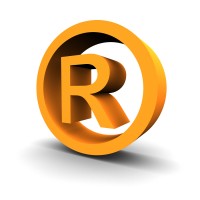 THE GLOBAL REACH OF THE INTERNET REQUIRES BANDS to be more diligent about intellectual property decisions and protections. Along with copyrights, the “trademark” is a staple of any band’s revenue source. At its core, a trademark is a word, phrase, or other symbol used in commerce to identify your brand, product, or identity. While obtaining a trademark is relatively straightforward, protecting your rights can be a different matter. Whether you’re starting a new band or are already in the business, here are some answers to basic questions regarding trademarks.
THE GLOBAL REACH OF THE INTERNET REQUIRES BANDS to be more diligent about intellectual property decisions and protections. Along with copyrights, the “trademark” is a staple of any band’s revenue source. At its core, a trademark is a word, phrase, or other symbol used in commerce to identify your brand, product, or identity. While obtaining a trademark is relatively straightforward, protecting your rights can be a different matter. Whether you’re starting a new band or are already in the business, here are some answers to basic questions regarding trademarks.
#1 Why have a trademark? In the music industry, a trademark exists for the protection of bands, labels, related businesses, and consumers by giving the creators and/or owners of products or services exclusive rights to use a certain name, word, or image to identify their products or services (and prevent others from using them). In addition, it protects consumers by ensuring that when they buy a product (for example a concert ticket), they know they’re getting the real thing. Trademarks also help protect bands by ensuring that their brand isn’t tarnished by other groups touting themselves as the original.
#2 How do I get a trademark? There are two ways to acquire trademark protection in the United States: through common law or by formal registration.
Common Law: If you have actively used your band name for a commercial purpose (i.e. performed publicly or put a song on iTunes), your band may already retain some rights to its name under the common law. The scope of these rights depends on a few factors: (1) where you are geographically active and (2) how long the name has been used. If you are established in a certain region, your protection likely encompasses that area and, if so, you’ll be able to prevent others from using your name there. Bear in mind, it is possible that several bands with the same name may each acquire common-law rights to the name in their respective territories. And with the advent of the internet and the accessibility of iTunes, domain names, and DIY touring, it is not difficult to see why regional trademark protection under the common law is quickly becoming irrelevant. Therefore, if your band is actually profitable or rapidly coming into the national consciousness, consider formal registration. The other consideration under the common law is timeliness. If two groups in the same region have the same name and are unregistered, protection will fall on which band was commercially active first.
Registration: Prior to registration, note the difference between a trademark and a service mark. A trademark is used in regards to goods (albums, merchandise), where a service mark is used for services (performances, ticket sales). While the common law treats these two similarly, consider registering both your service mark and your trademark simultaneously. Registration for both trademarks and service marks is accomplished through the U.S. Patent and Trademark Office. The advantage of registration is that (1) it puts other groups on notice that your band’s name is “taken” and (2) it allows you to sue in Federal court if a dispute arises. There are some qualifications you will need to check off prior to registering. First, have you participated in “interstate commerce” (i.e. toured or sold your music in several states?). Second, do you have proof that your name has been used in commerce? If you’ve answered “yes” to both of these questions, you may begin the registration process. Do it yourself at www.uspto.gov or for an affordable rate, www.directlegal.com. If you want the assurance that it’s completed properly, hire an attorney specializing in trademarks. Once you officially register your band name, you are presumed the lawful owner in the United States.
#3 How do I avoid a trademark dispute? Whether between bands and bands (The Dinosaurs v. “Dinosaur” – now Dinosaur Jr.), labels and bands (Verve Records v. The Verve), or bands and brands (Weezer v. Miller Brewing Co.), conflicts regarding the use of words or phrases are a common problem in the industry. The issue that arises is whether there will be a “likelihood of confusion” between the names. That is, if the consumer could mistake one band (or brand) for an established and/or protected group. If you are just starting out, make every effort to cover yourself and make sure you’re not infringing on someone else’s trademark. There are numerous reference sources, and I suggest reviewing them all. Start with the performing rights societies databases (ASCAP, BMI, SESAC), and then check online sources like iTunes, MySpace, PureVolume and Bandname.com.
Adam Barnosky is a practicing attorney and writer specializing in entertainment law and business development. He has worked with musicians, actors, and playwrights in Boston and New York City. Find him at www.adambarnosky.com.
DISCLAIMER: The information contained in this column is general legal information only. Any use of this column does not create or constitute an attorney-client privilege. Consult your attorney for all specific considerations.
